research & publishing
hidden histories



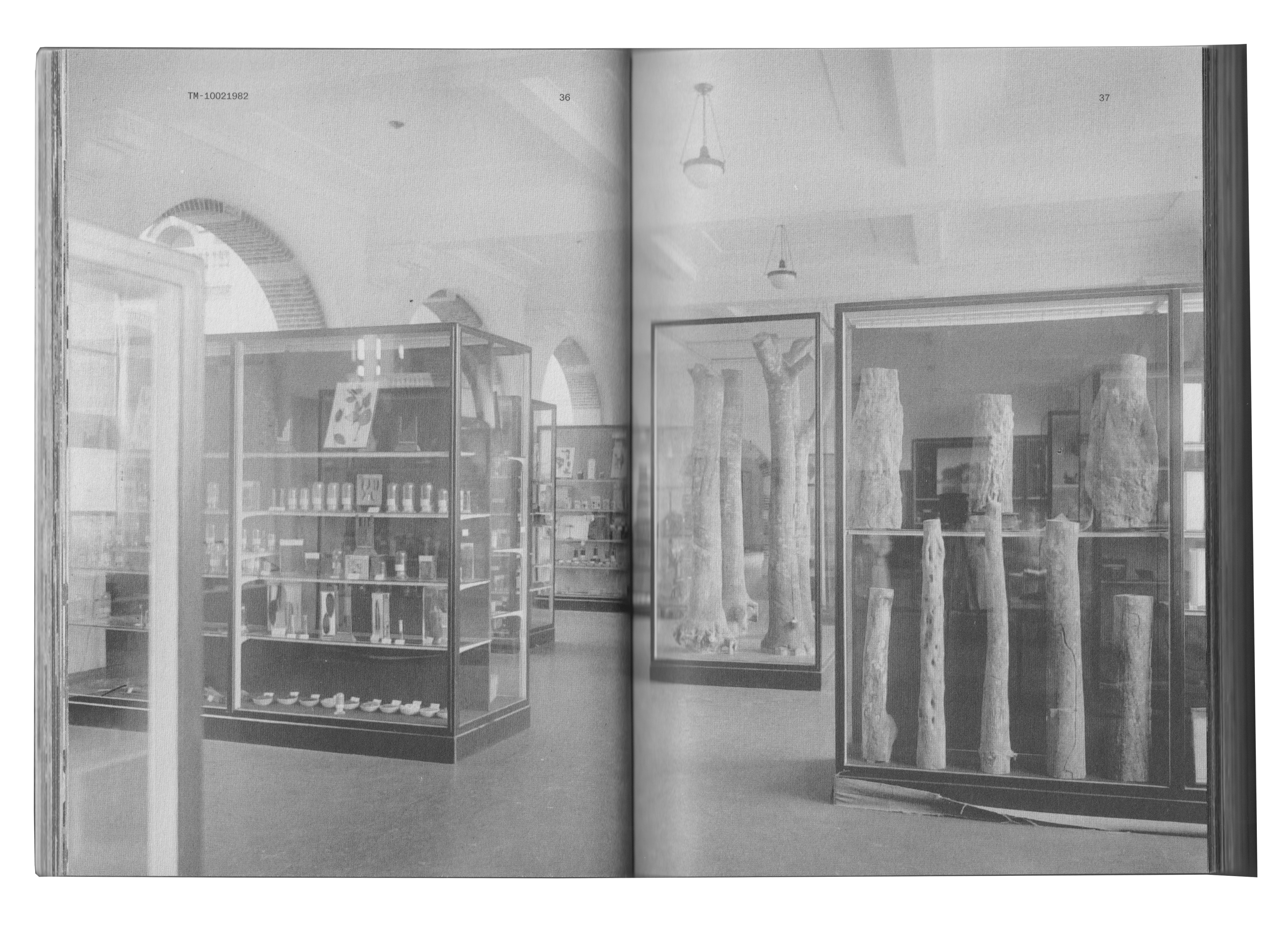

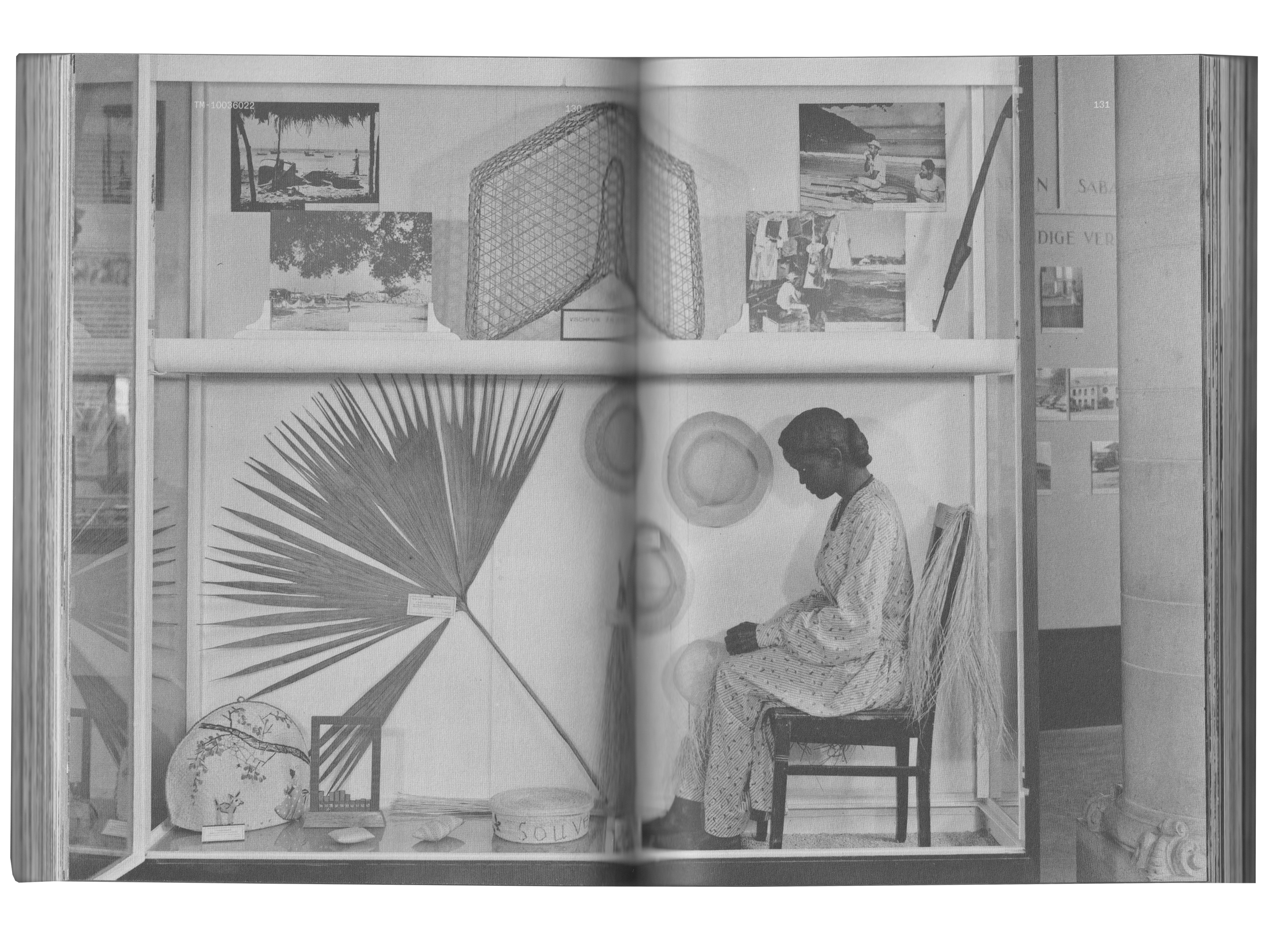

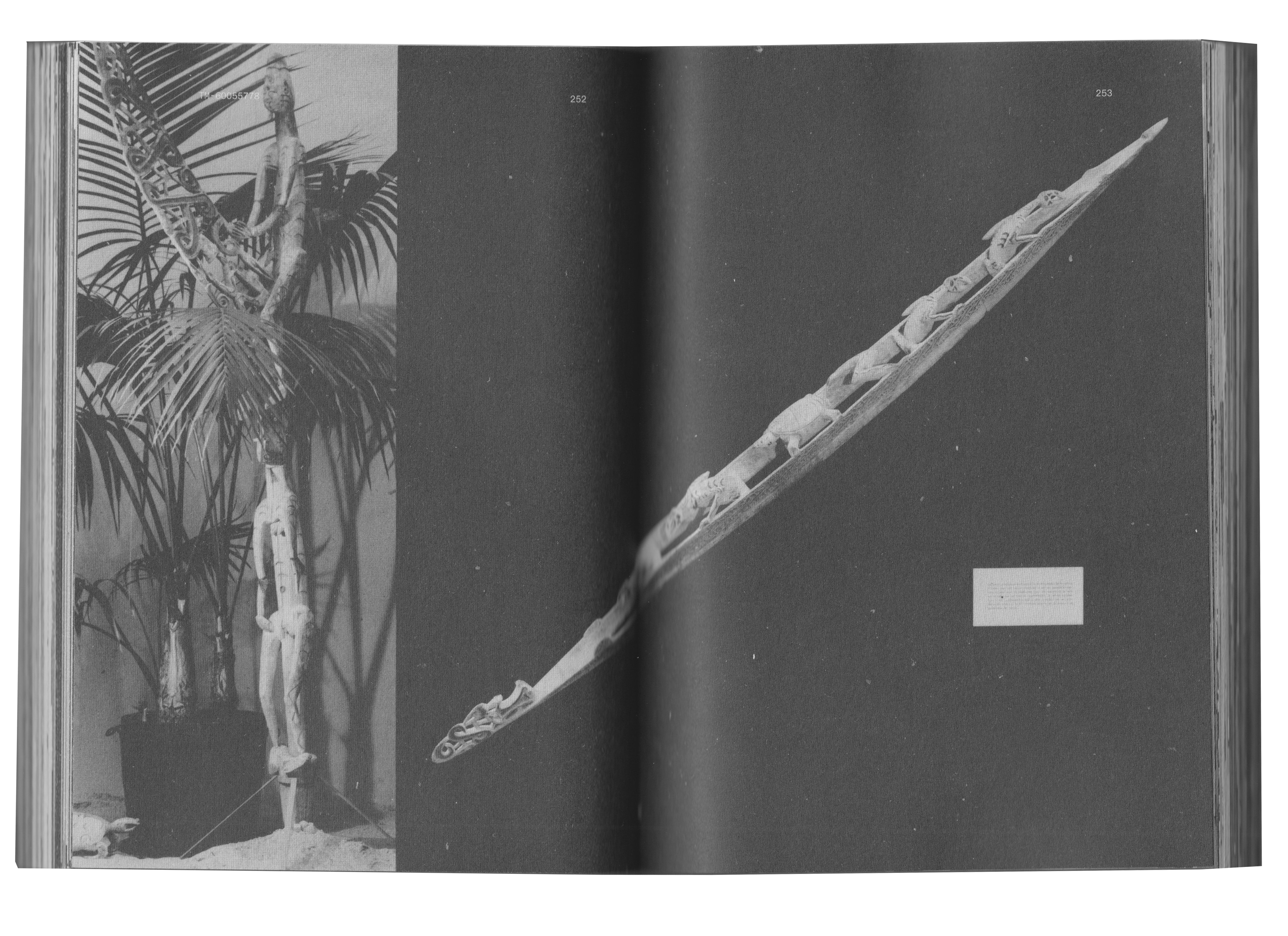
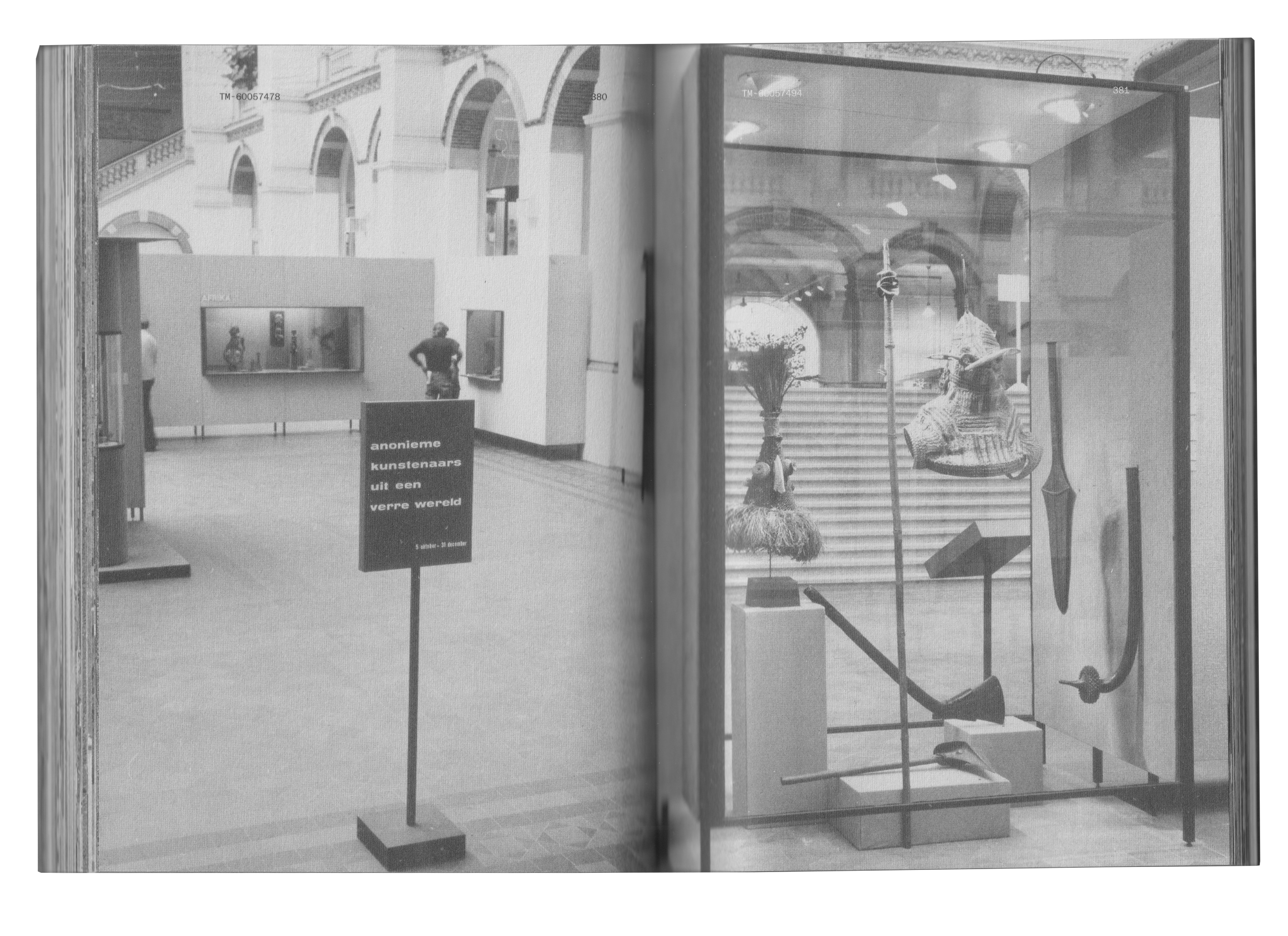


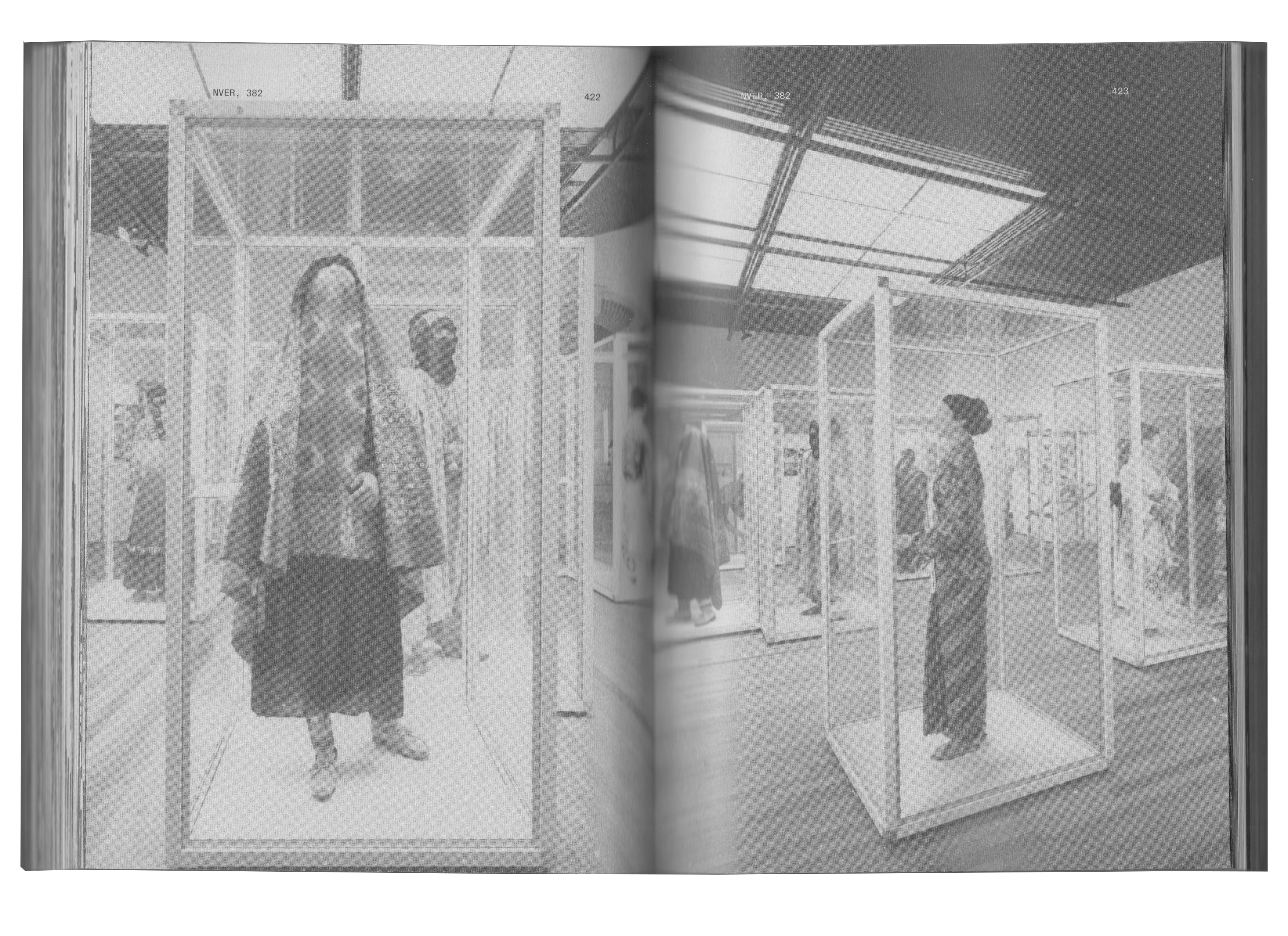

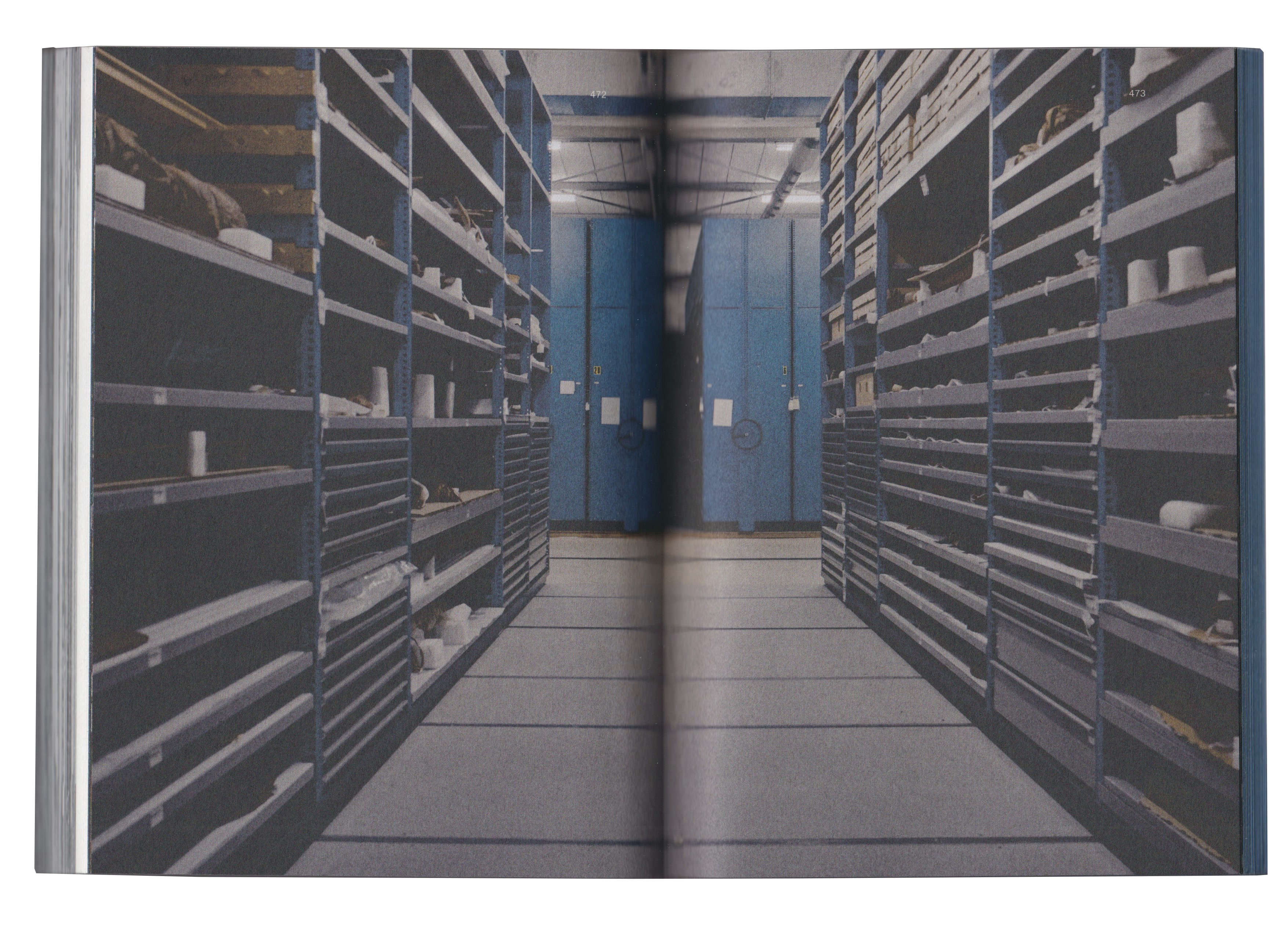

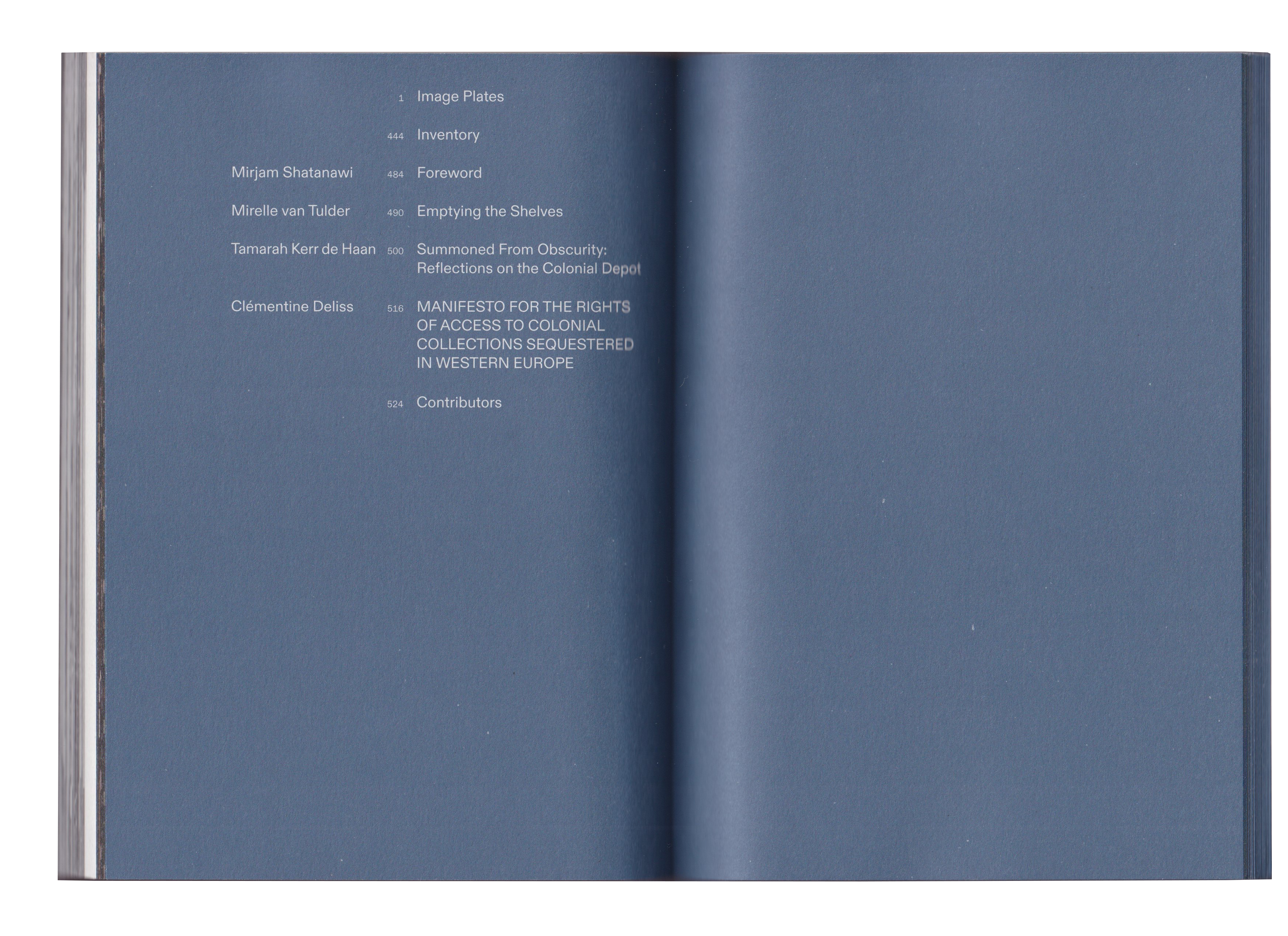
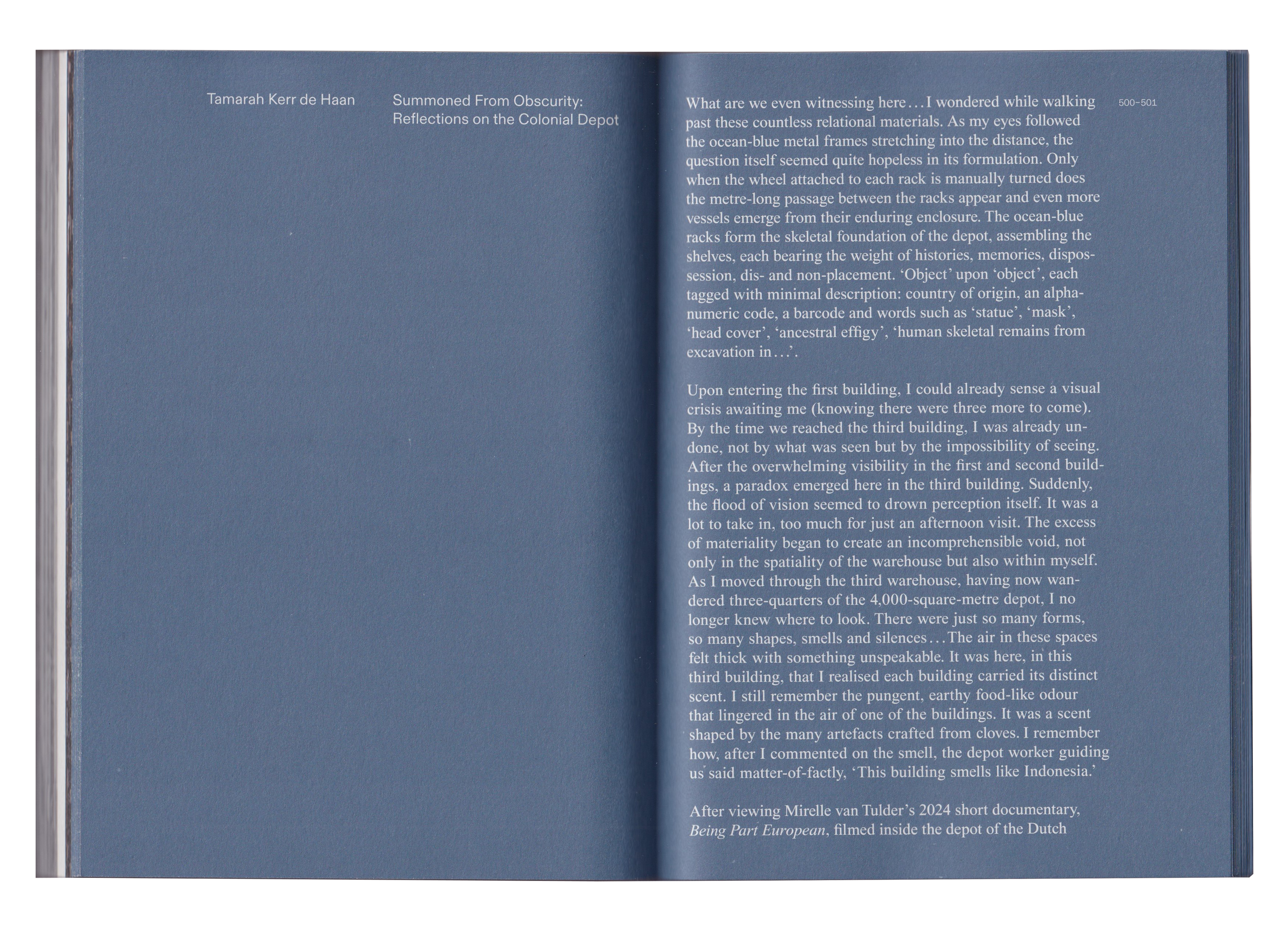
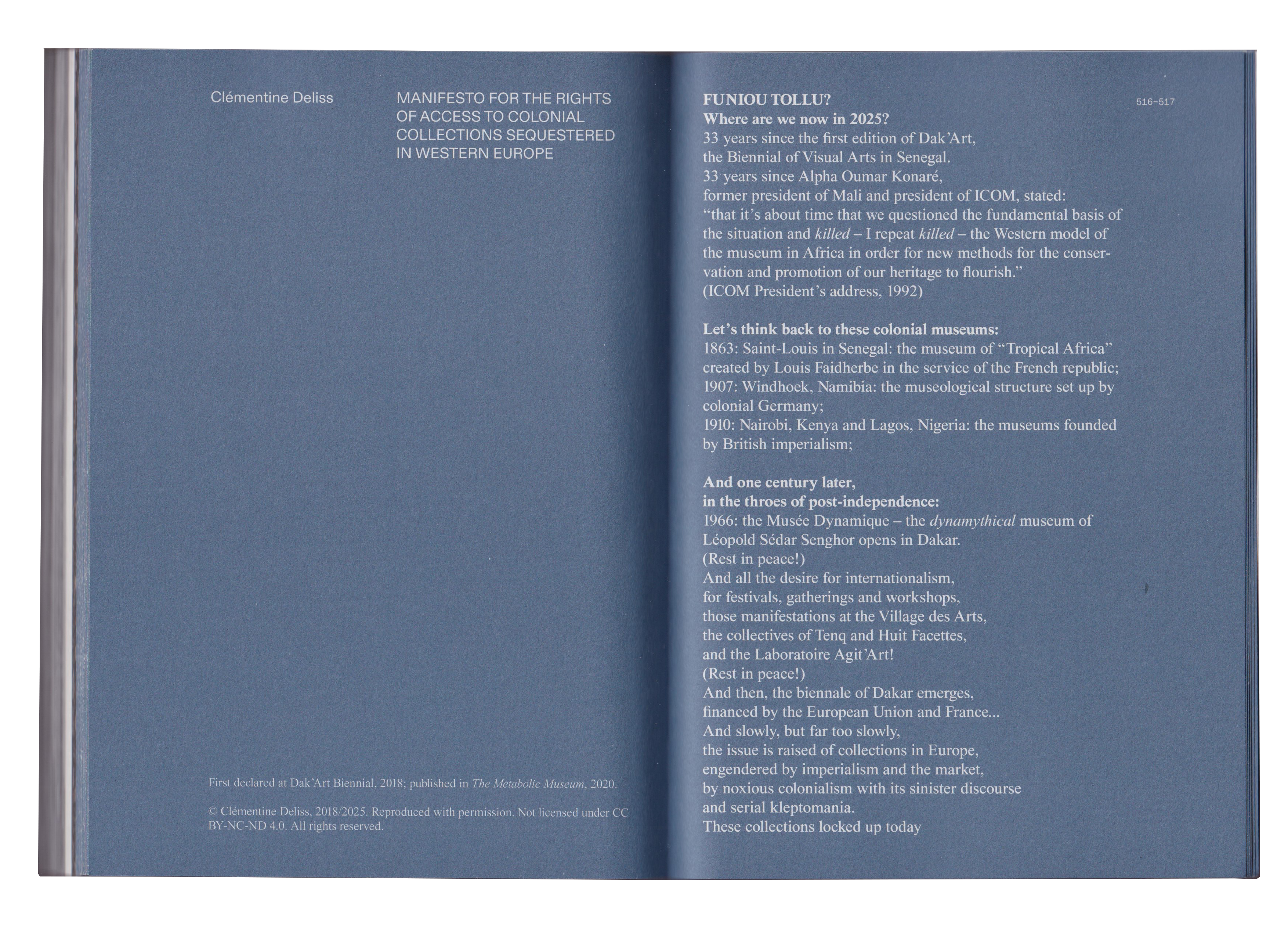
Emptying the Shelves traces how Dutch ethnographic museums – among them the Dutch National Museum of World Cultures and its predecessors – have shaped and reshaped their displays over the past century. Drawing on a trove of archival exhibition photographs and contemporary essays, it charts the transition from crowded cabinets to austere white cube displays, with most objects now in storage facilities. With texts by Tamarah Kerr de Haan, Clémentine Deliss and Mirjam Shatanawi, this publication examines what it means to engage with these objects today and how their silence is intimately connected to colonial legacies, restitution and repair.
Edited by Mirelle van Tulder
Design by Victoria Lum
Published by Roots to Fruits, co-published by Framer Framed 2025. 135 x 190 mm, 528 p.; 240 b/w illustrations, text: English.
Distribution
Worldwide: Idea Books
UK: Public Knowledge Books
Edited by Mirelle van Tulder
Design by Victoria Lum
Published by Roots to Fruits, co-published by Framer Framed 2025. 135 x 190 mm, 528 p.; 240 b/w illustrations, text: English.
Distribution
Worldwide: Idea Books
UK: Public Knowledge Books



“In van Tulder’s work, by refusing the object, she objects to the gaze, and the categorisation and reductionism practices implied in its cataloguing. The empty spaces hint at a possible alternative, a negation of colonial attitudes of epistemological, institutionalised authority. Presenting the non-material instead, the artist both refuses and highlights the fetishistic container in which these images came into being. This gesture forces the viewer to confront their position—do we search for the missing object, or recognise the violence depicted in its absence? The work thus unfolds as an investigation into the act of looking at these photographed artefacts, in their found condition, dissected as they are from any context. The act of removal highlights the missing condition of these artefacts, and reminds us how this legacy is constructed from exclusion. The final work, an empty catalogue, calls for a dismantling of systems of representation that are aligned with colonial attitudes. 'Catalogue of Stolen Objects, Courtesy of’' makes visible the invisible (and buried) practices of erasure, displacement and subjugation that inform our worldview.”
Excerpt from “Excizing the Gaze, Reframing Absence”, by Mariana Lobão
21 x 28 cm, 64 p.; 129 b/w illustrations, text: English. Amsterdam, 2025.
Excerpt from “Excizing the Gaze, Reframing Absence”, by Mariana Lobão
21 x 28 cm, 64 p.; 129 b/w illustrations, text: English. Amsterdam, 2025.
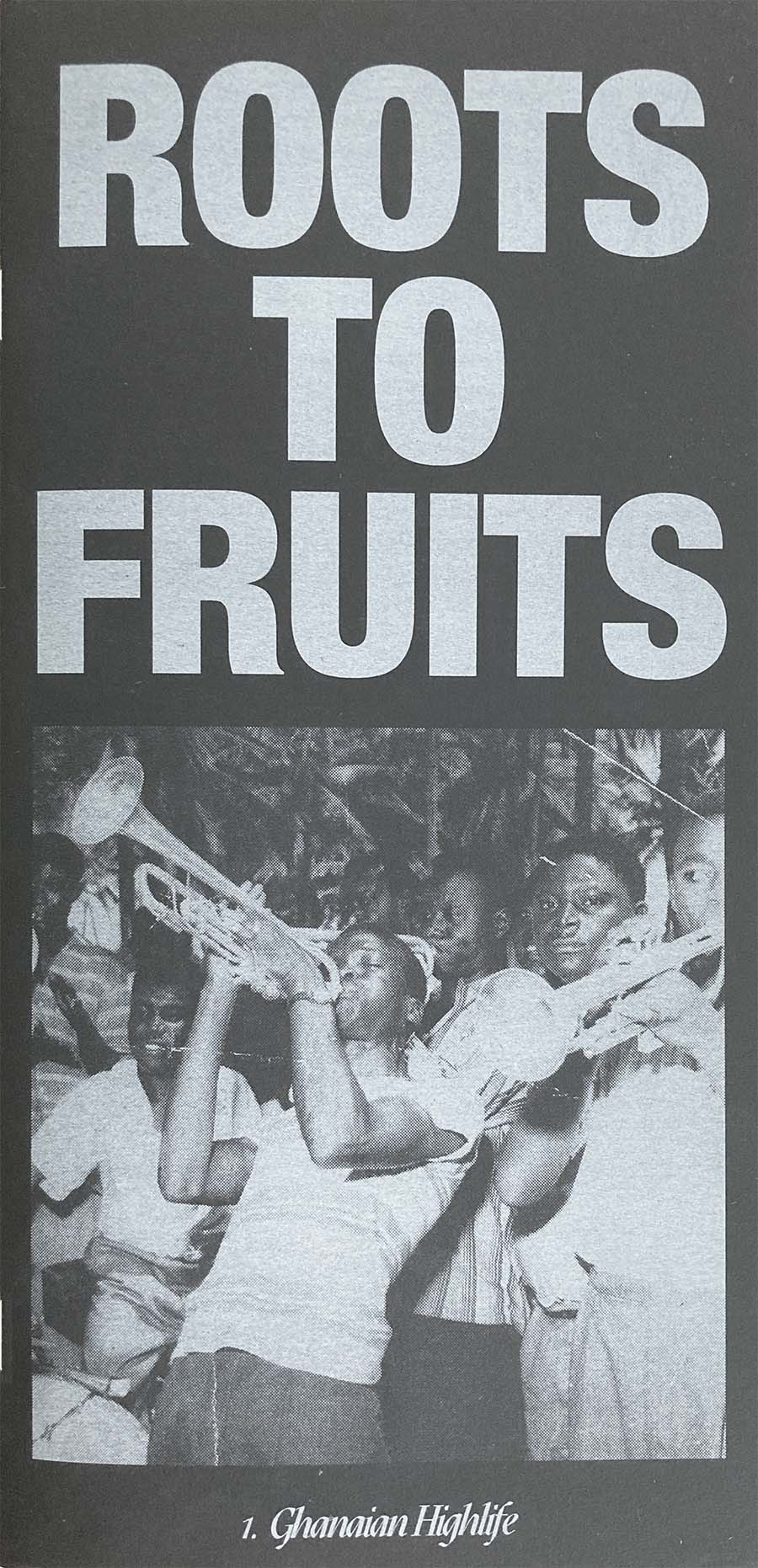

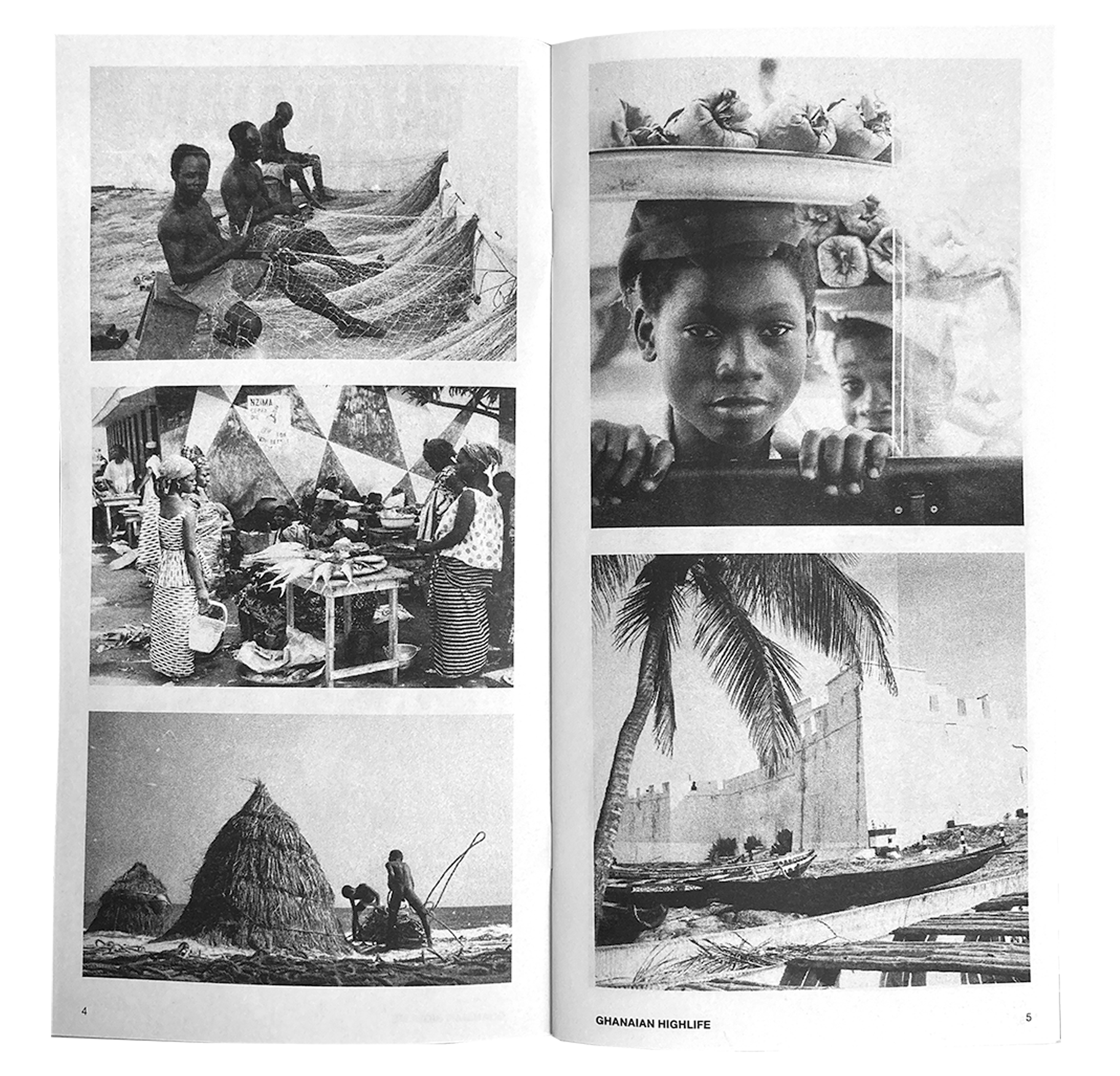
Roots to Fruits is a magazine about music; its migration and origins, and its role against oppression. The first issue is dedicated to Highlife and its vital role in the struggle for independence and the creation of an African identity during the time of Kwame Nkrumah. It features an article by Dele Adeyemo, and a visual essay by Mirelle with images from the archive of the Wereldmuseum (NL) and the Royal Tropical Institute (KIT).
Dele Adeyemo’s ‘The Modernizing Beat’ rereads the production of space in a modernizing Ghana through highlife, taking the modernist New Town and Tema Harbour as a case study about how the emergence of the ‘worksong’ has governed urbanization in Ghana.
The beat of highlife’s precursor, the worksong, bound the community together in collective life that was attuned to the rhythm of the tides and cycles of the seasons; the evolution of the highlife sound can tell a story of the circulation of cultures, commodities, and political-economic structures condensed into the spatial forms of a modernizing Ghana.
Contributor: Dele Adeyemo
Editing, Design and Riso printing: Mirelle van Tulder
Print run: 400
Dele Adeyemo’s ‘The Modernizing Beat’ rereads the production of space in a modernizing Ghana through highlife, taking the modernist New Town and Tema Harbour as a case study about how the emergence of the ‘worksong’ has governed urbanization in Ghana.
The beat of highlife’s precursor, the worksong, bound the community together in collective life that was attuned to the rhythm of the tides and cycles of the seasons; the evolution of the highlife sound can tell a story of the circulation of cultures, commodities, and political-economic structures condensed into the spatial forms of a modernizing Ghana.
Contributor: Dele Adeyemo
Editing, Design and Riso printing: Mirelle van Tulder
Print run: 400
Nº2 Champeta, 2023
Launch: 22–24 September 2023, Miss Read Berlin,
Haus der Kulturen der Welt
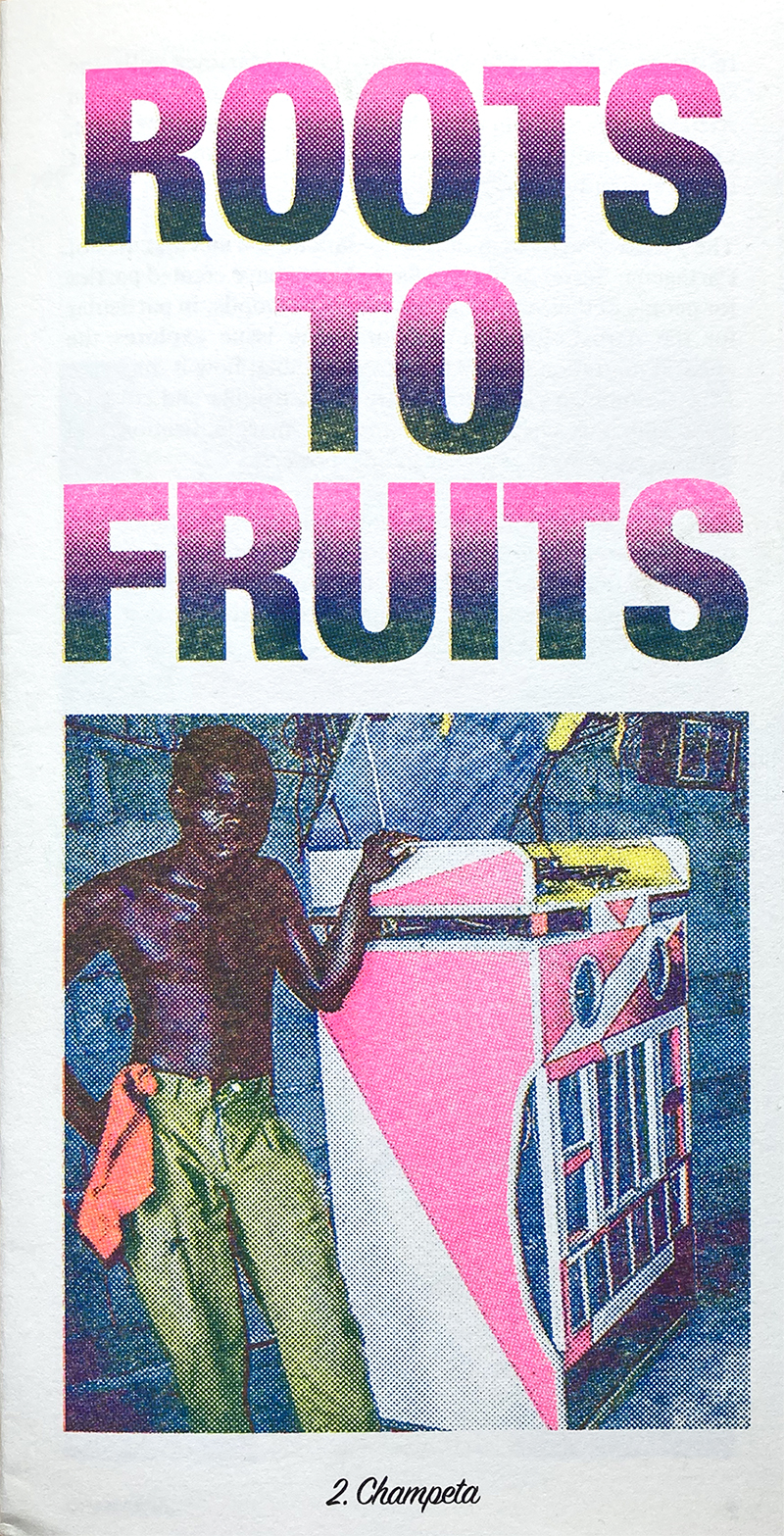
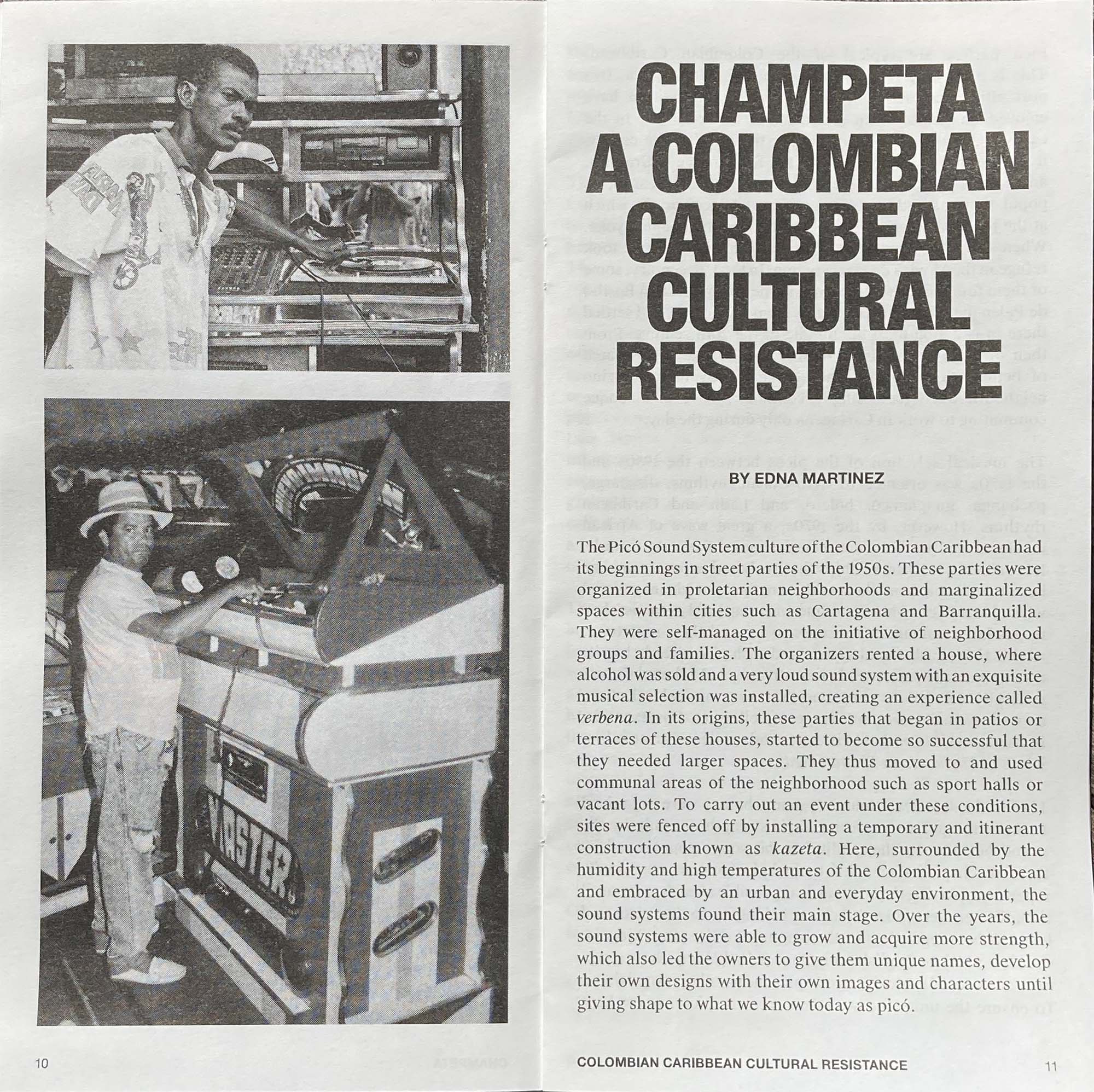
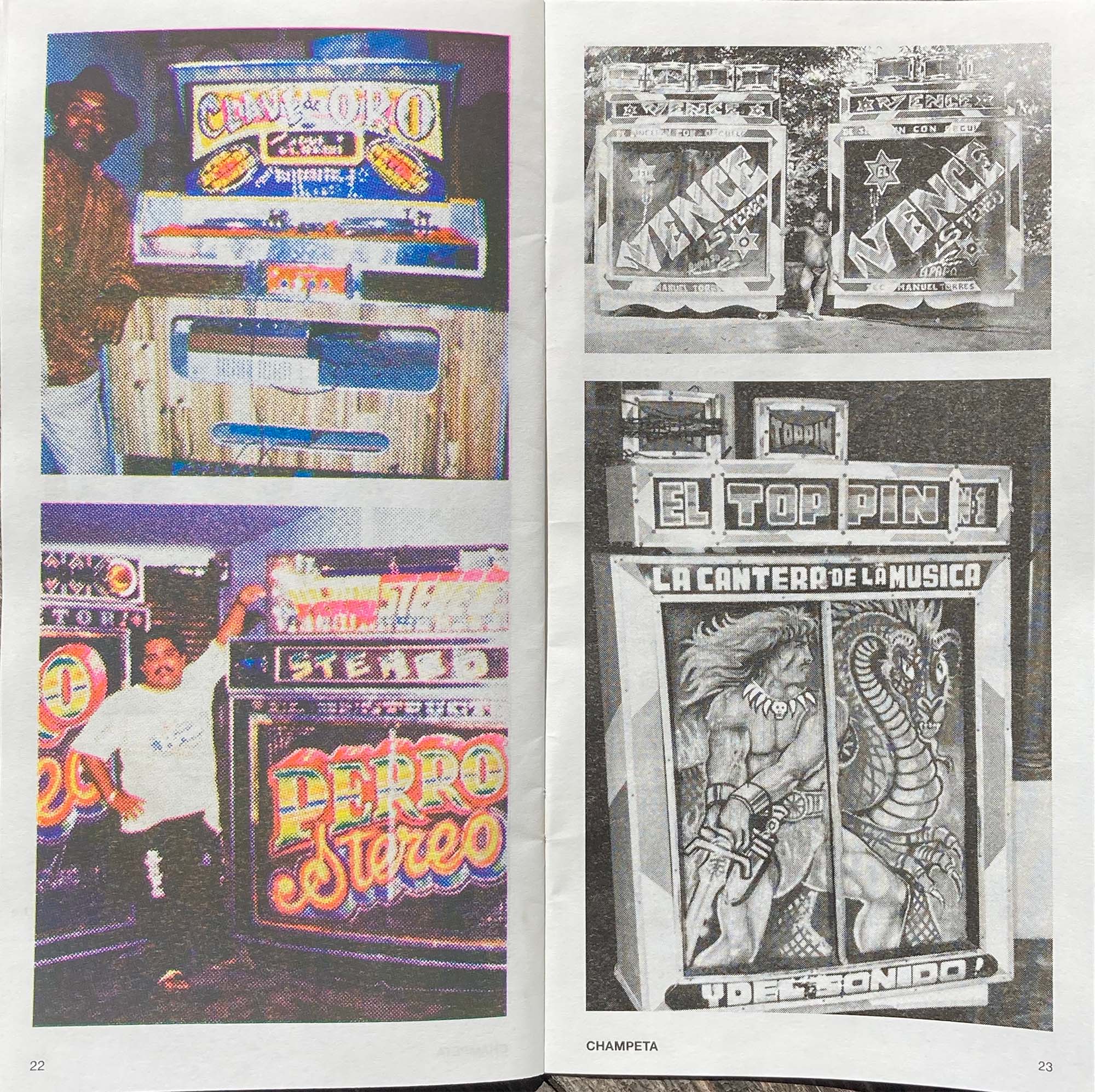
Roots to Fruits Nº2 Champeta: A Colombian Caribbean Cultural Resistance
In Roots to Fruits Nº2 Champeta, Edna Martinez tells the story of Champeta, an Afro-Colombian music genre based on African rhythms, from which local producers create new sonic, visual and spatial practices, as both an outcome and facilitator of cultures of resistance.
The Picó Sound System of the Colombian Caribbean cities of Cartagena, Barranquilla and Santa Marta have created parties for people of their working-class neighborhoods, in particular for the Afro-Colombian diaspora. The issue explores the musical migration from Africa to Colombia; how it made the Afro-Colombian’s diaspora aware of its origins and colonial past; and how champeta has resisted marginalisation and continuous to break with hegemonic powers.
We’re thrilled to be able to share an essay by Edna Martinez in this issue. Edna is an artist, DJ, and Curator of Music and Sonic Practices at Haus der Kulturen der Welt (HKW), Berlin.
Contributor: Edna Martinez
Editors: Daniel Senior Durán & Mirelle van Tulder
Design and Riso printing: Mirelle van Tulder
Print run: 400
In Roots to Fruits Nº2 Champeta, Edna Martinez tells the story of Champeta, an Afro-Colombian music genre based on African rhythms, from which local producers create new sonic, visual and spatial practices, as both an outcome and facilitator of cultures of resistance.
The Picó Sound System of the Colombian Caribbean cities of Cartagena, Barranquilla and Santa Marta have created parties for people of their working-class neighborhoods, in particular for the Afro-Colombian diaspora. The issue explores the musical migration from Africa to Colombia; how it made the Afro-Colombian’s diaspora aware of its origins and colonial past; and how champeta has resisted marginalisation and continuous to break with hegemonic powers.
We’re thrilled to be able to share an essay by Edna Martinez in this issue. Edna is an artist, DJ, and Curator of Music and Sonic Practices at Haus der Kulturen der Welt (HKW), Berlin.
Contributor: Edna Martinez
Editors: Daniel Senior Durán & Mirelle van Tulder
Design and Riso printing: Mirelle van Tulder
Print run: 400
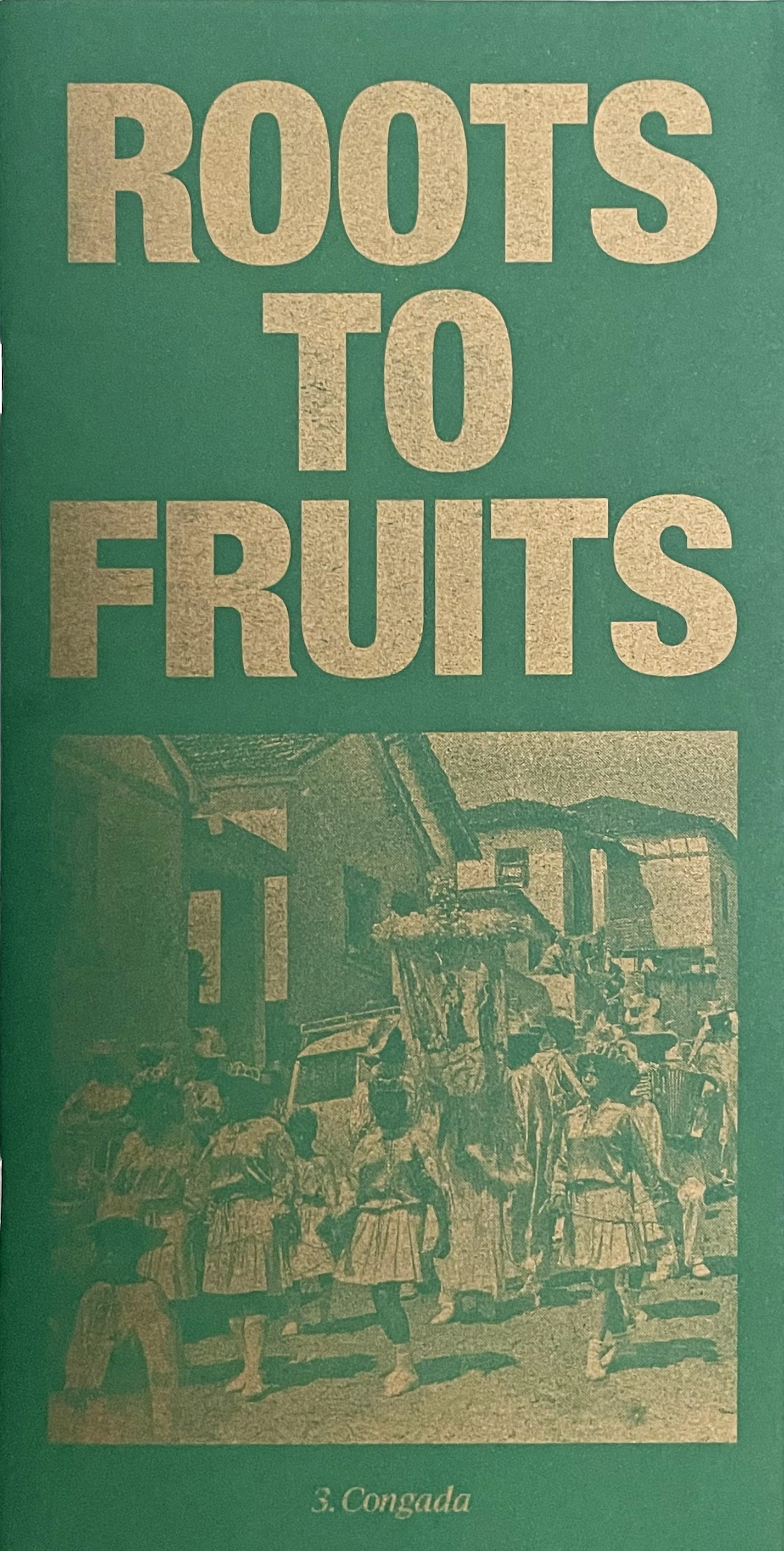
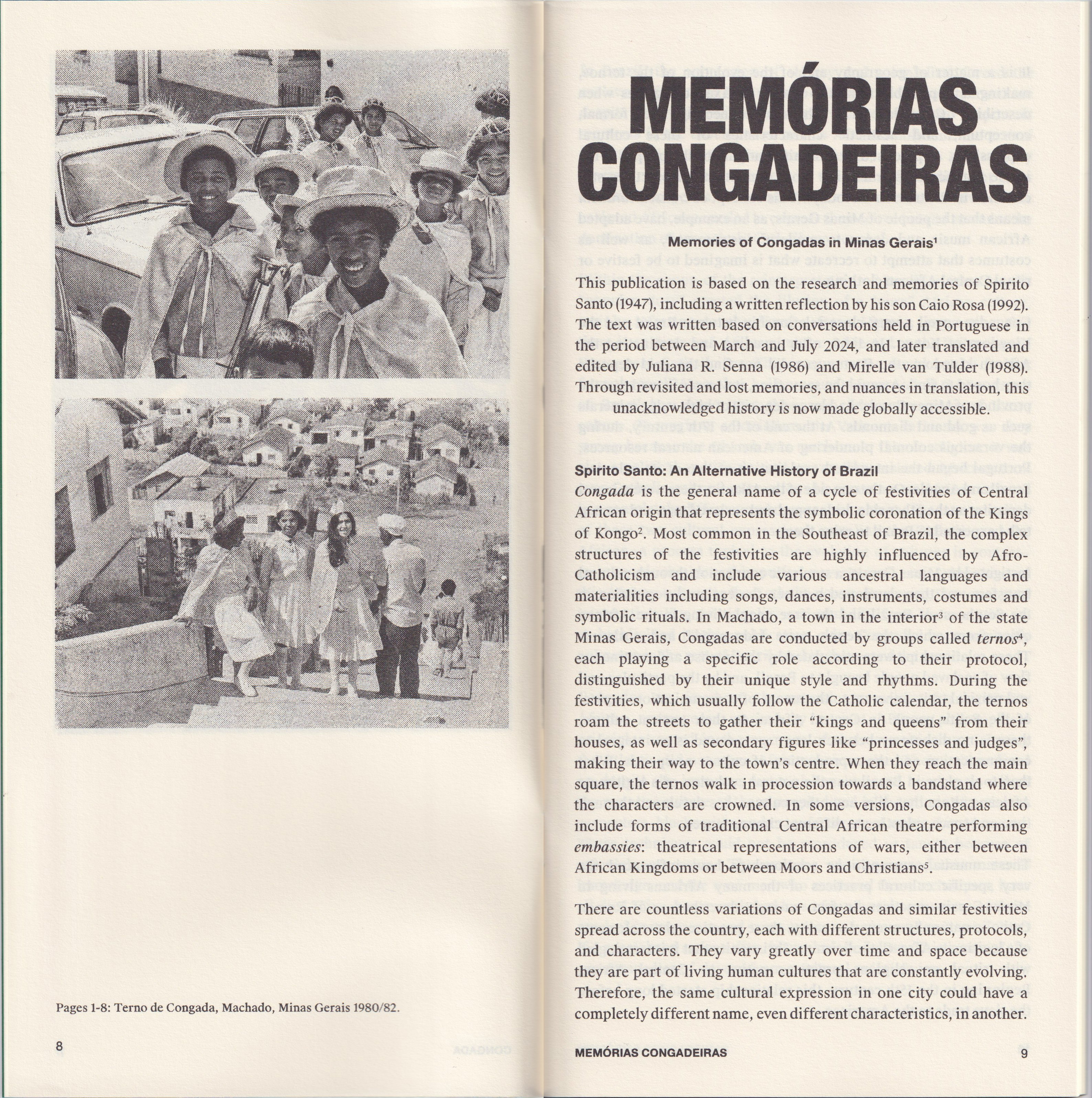
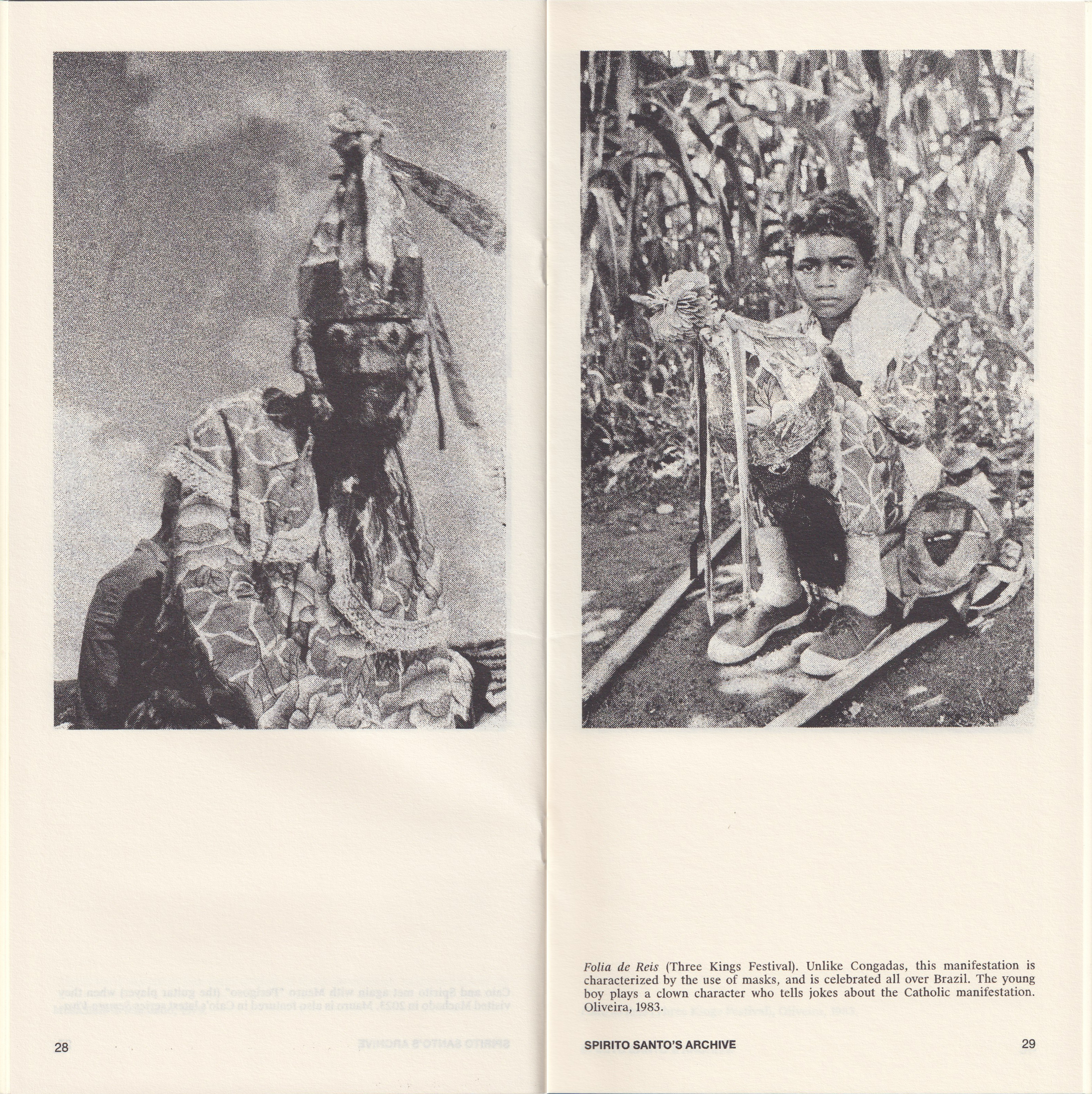

Over the course of five decades, self-taught musician and ethnomusicologist Spirito Santo (1947) has produced hundreds of hours of audio recordings containing music, reports and interviews, many meters of black & white negatives and colored slides using amateur photographic equipment, such as polaroids, point-and-shoot cameras and K7 recorders, capturing unique moments of the cultural history of the Central African diaspora in Minas Gerais, Brazil.
This season of Roots to Fruits explores the building of a self-funded archive and one of its most recurrent themes, namely: Congadas. Far from the academic realm, which had little to no interest in understanding the “African culture in Brazil”, the archive tells many stories. It speaks of a resilient musician looking for resonance and the history of his people, as well as of the underexposed Black inheritance of Brazil’s identity.
In Memórias Congadeiras, Spirito Santo and his son Caio Rosa challenge hundreds of years of Portuguese imperial rule that have dominated the memory-making processes taking place in Brazil’s society, carrying out a collective process of resistance against colonial erasure of the cultural expressions practiced by their ancestors.
The precious intergenerational and intercontinental conversations that preceded this issue have shown us just how much knowledge and Brazilian history is still hidden in personal archives. Roots to Fruits Nº3 Congada is an homage to Spirito Santo’s life’s work, most of which has never been published before. Through revisited and lost memories, and nuances in translation, this unacknowledged history is now made globally accessible.
Contributors: Spirito Santo & Caio Rosa
Editors: Juliana R. Senna & Mirelle van Tulder
Translation: Juliana R. Senna
Final Editing: Tamara Hartman
Editor-in-Chief: Mirelle van Tulder
Graphic Design: Mirelle van Tulder
Printing: Riso Paradiso
Publisher: Roots to Fruits, Amsterdam 2024
48 pages
(gold ink, looks better irl)
This season of Roots to Fruits explores the building of a self-funded archive and one of its most recurrent themes, namely: Congadas. Far from the academic realm, which had little to no interest in understanding the “African culture in Brazil”, the archive tells many stories. It speaks of a resilient musician looking for resonance and the history of his people, as well as of the underexposed Black inheritance of Brazil’s identity.
In Memórias Congadeiras, Spirito Santo and his son Caio Rosa challenge hundreds of years of Portuguese imperial rule that have dominated the memory-making processes taking place in Brazil’s society, carrying out a collective process of resistance against colonial erasure of the cultural expressions practiced by their ancestors.
The precious intergenerational and intercontinental conversations that preceded this issue have shown us just how much knowledge and Brazilian history is still hidden in personal archives. Roots to Fruits Nº3 Congada is an homage to Spirito Santo’s life’s work, most of which has never been published before. Through revisited and lost memories, and nuances in translation, this unacknowledged history is now made globally accessible.
Contributors: Spirito Santo & Caio Rosa
Editors: Juliana R. Senna & Mirelle van Tulder
Translation: Juliana R. Senna
Final Editing: Tamara Hartman
Editor-in-Chief: Mirelle van Tulder
Graphic Design: Mirelle van Tulder
Printing: Riso Paradiso
Publisher: Roots to Fruits, Amsterdam 2024
48 pages
(gold ink, looks better irl)